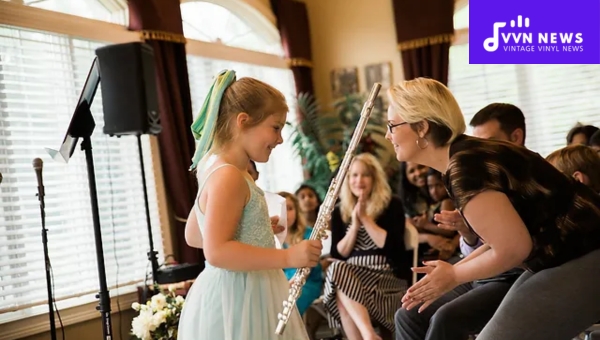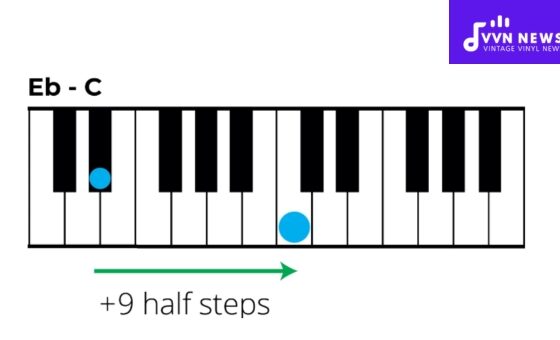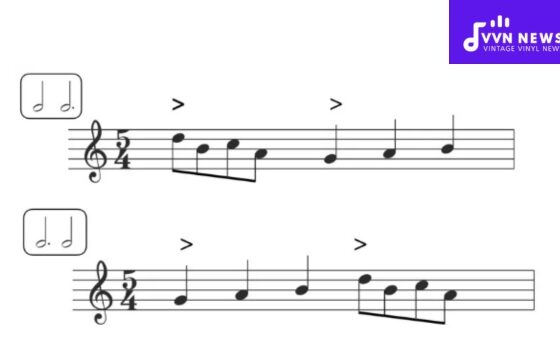As someone passionate about music, you might find it challenging to have meaningful conversations about your love for melodies with your non-musical parents.
It does not have to be a stumbling block in building a stronger bond with them. This article will share 5 easy steps to relate to non-musical parents and build bridges rather than walls through the universal language of music.
Each family is a collection of different personalities and interests. While this diversity can sometimes create misunderstandings, it can also lead to fantastic opportunities for growth and learning.
Let’s journey together through these steps towards fostering a deeper understanding between you and your parents in the realm of tunes.
5 Easy Tips To Relate To Non-Musical Parents
Navigating the waters between a musical passion and non-musical parents can sometimes seem like sailing in two different seas.

But, with some creative and thoughtful approaches, you can bridge this gap.
Let’s explore five actionable steps to help your family appreciate your love of music, even if Mozart and Beethoven aren’t their household names.
1. Share Your Musical Experiences Casually
The key to engaging with someone outside of your interest bubble is subtlety. Imagine dropping small anecdotes about a recent performance or a new song you’ve discovered during dinner conversations.
Rather than overwhelming them with technical jargon or intricate theory details, focus on the aspects that excite you—the emotions a particular piece evokes or the story behind a song’s lyrics.
These are insights anyone can connect with, no musical background necessary.
2. Involve Them in Your Practice Sessions
“Would you like to hear what I’m working on?” Such an invitation can pique curiosity without making them feel pressured to grasp the technicalities of music.
Allow them to be passive observers to start; their mere presence can be an encouraging sign of support.
Over time, they might begin asking questions or even offer feedback from their unique perspectives—as laypersons who appreciate the finished product rather than the process.
3. Educate Them About Your Musical Journey
Create an informal yet informative pathway for your parents to trace your developments as an artist.
This could include sharing stories about different genres and instruments or highlighting how certain musicians influenced you deeply.
Supplement these tales with links from credible sources such as music history articles and quick snippets from documentaries—visuals and narratives are often more memorable than facts alone.
4. Find Common Musical Ground
There exists some intersection between almost every two genres under the sun. Be it classical samples in modern pop songs or folk tunes reminiscent of age-old ballads—they just need uncovering.
Begin by identifying songs or artists that resonate across generations within your family tree—a classic Beatles hit or a timeless jazz standard might do the trick—and start building playlists together.
5. Celebrate Musical Milestones Together
Take every opportunity to mark important achievements within your musical endeavors with those who mean the most: your parents.
It is about mastering a challenging piece, nailing an audition, or simply gaining new insights into music theory, inviting them into these triumphs.
Frame concert programs from events they’ve attended or compile video highlights from recitals; make these commemorations tangible expressions of shared joy.
Employing these approaches will not only illuminate your world of music for those around you but might also deepen familial ties through newfound communal experiences centered around melodies and harmonies that transcend words.
While they may not share in your musical vocabulary completely, the underlying themes—the struggles, joys, setbacks, and victories—are universally relatable narratives that all hearts at their core.
Also Read: How To Transpose Bass Clef To Treble Clef [A How-To Guide]
FAQs
How can I explain the technical aspects of music to my parents?
Explain the basics using analogies from activities they enjoy or keeping it light and relatable without the jargon.
What if my parents have no interest in music at all?
Focus on sharing your enthusiasm and explain how your musical interests positively influence you, rather than forcing technical interest.
How can I involve my parents in music without overwhelming them?
Start with simple appreciation, such as listening to a piece together and discussing it informally over dinner.
Is it possible for non-musical parents to support their child’s musical aspirations?
Absolutely. They can provide emotional support, attend performances, and celebrate your progress, even if they don’t know music technically.
What should I do if my choice of music clashes with my parents’ tastes?
Look for common themes or emotions in music that you both enjoy. It’s about sharing feelings, not genres.
Also Read: Mastering Chords In A Minor [Improve Your Composition Skills]
Conclusion
Connecting with non-musical parents over your musical endeavors may seem daunting, but it is far from impossible. Embrace their perspective, share your experiences casually, and involve them in learning about your passion.
Discovering a common musical language can not only broaden their appreciation but also enrich your relationship. The goal is to build bridges through music, not to convert them into aficionados overnight.
Through patience and appreciation, you’ll find harmony in your familial relationships outside the realm of music.








